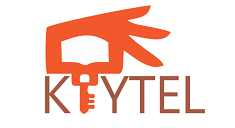Converting leasehold to freehold property will have a disastrous impact on the money that the Noida authority now relies on on, as the lease charges model is the principal source of income for the Noida authority, which is straining under the weight of a hefty financial burden. Over twenty thousand rupees are owed by various allottees, most notably developers, and the authorities are responsible for collecting this money. Financial constraints are making life difficult for the rules. The authority’s fixed deposit used to be nearly 8,500 billion rupees; today, it’s closer to 150 billion. Noida is reportedly having financial difficulties, and if the 99-year lease programme is discontinued, the city will not be able to pay its employees. We can gather that the Noida administration is amidst a major crisis.
The current lease rate imposed by the Noida authority ranges from 1% to 2.5% of a property’s market value. For residential properties, the rule mandates a lease rent payment of 1% of the property’s worth, whereas, for non-residential assets, the rent payment is 2.5% of the property’s value. The full land value is used to calculate the lease payment. The price of land is mainly determined by its allotment rate. The allotment rate is the amount the government asks for when selling or allocating land to a buyer or function Object(). For example, if 500 apartments are constructed on 10,000 square metres of group housing property and the cost of 10,000 square metres of land (at the allocated rate) is Rs 500 crore. Each apartment owner will have to share 1 per cent of the overall price of Rs 500 crore.
What is Freehold Property?
The word “freehold” implies that this form of property is not subject to any type of hold, and this is indeed the case. The ground on which the building stands belongs equally to whoever owns the structure, be it an individual or a group. This means that the owner’s title to the property is always unfettered. The ability to sell or lease out a freehold property with minimal hassle is a major perk for many homeowners. Fewer issues arise, and the proprietor needs to answer to no one but themselves for whatever decision they make about any part of the establishment.
If you buy a freehold property, you own it outright and have the right to do whatever you want with it, including constructing additions and putting in amenities, as long as you don’t violate anyone else’s rights.
What is a leasehold property?
There is a world of difference between freehold and leasehold properties. A leasehold property is a property you do not own outright but rent from a landlord. Lease terms could span from one year to 99 years. During your lease term, you will have access to the premises, but you will have no legal claim to the land, and if you want to make any changes to the building, you will need to get in touch with the legal owner of the property.
The critical advantage of leasehold properties is that you just have to pay for specified repairs and maintenance. It’s possible that you won’t need to spend any money fixing significant problems, and you might even be able to put off paying for regular maintenance.
How to convert Leasehold Property to Freehold Property?
The owner must first negotiate with the lessor to purchase the leasehold interest to obtain freehold title to a leased residential or commercial property. You can go to the next stage if they are.
If things go well, you’ll have to draught paperwork to sell the property and get a certificate saying no one is disputing the deal (if the land is mortgaged). If you want to change the land and property’s legal classification, you may have to pay a conversion charge to the government.
Insurance of Freehold Property
One of the significant disadvantages of freehold properties compared to leased properties is the inclusion of a risk component. However, you can lessen the odds of property loss by purchasing insurance.
Whether you currently own a freehold home or hope to buy one soon, freehold property insurance should be the first line item in your budget. Buildings and other personal property are vulnerable to destruction from both natural and artificial disasters; without insurance, the cost of repairing the damage could be prohibitive if it occurs. Insurance protects you financially if your property is damaged, reducing your risk and your responsibility.
Insurance of Leasehold Property
After looking into the distinctions between freehold and leasehold properties, it’s easy to conclude that the latter is the safer investment. While this does reduce the risk, it does not eliminate it. The lessor may be the building’s owner. None of that changes the fact that you own everything inside the structure.
Because of this, it is strongly suggested that you purchase content insurance to protect your belongings. The lessor or owner of the building will be responsible for insurance. These insurance policies should be reviewed and revised regularly to ensure that everyone is always adequately covered.
Which is better: freehold or leasehold ownership of a property?
It’s not easy to definitively say that one type of ownership is better than the rest. There are perks and drawbacks to each option, but they all vary.
Yet, there are situations where a freehold property is preferable.
- You’re thinking about buying an investment property.
- You have made the lifelong commitment to provide a stable residence for your loved ones by purchasing a house.
- Getting a mortgage loan from the bank is necessary to complete the home purchase.
- You’ve lived there for a while and now want to rent it out or sign a lease on it.
- You plan to add more stories to the building shortly.
- The following are examples of why buying a home with a leasehold title makes more sense.
- You don’t want to get involved in any legal conflicts with the property, and you don’t know anything about the law.
- You want to buy a substantial piece of land on which there is already a building so that you can set up shop there.
- You wish you could afford a place right in the middle of the action, but unfortunately, your budget won’t allow it right now.
- You don’t want to be preoccupied with the business’s overhead expenses, do you?
- You want to be able to pick up and go whenever the mood strikes you.




